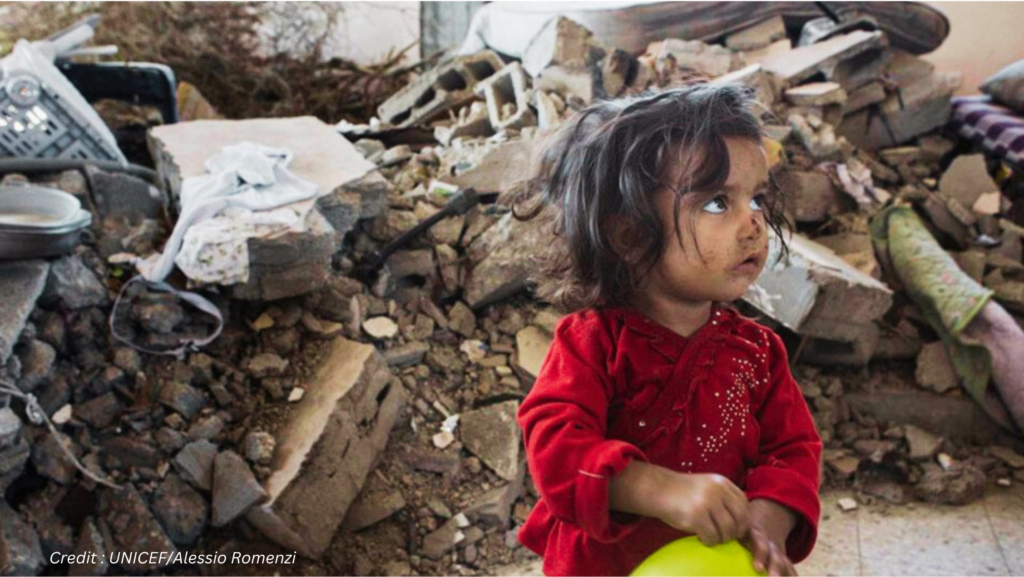New York, December 28, 2024 – The number of children affected by conflicts worldwide has doubled in the past 10 years with more than 473 million, or more than one in six globally, are now living in conflict zones or displaced due to violence, the UN Children’s Fund (UNICEF) said in a study.
The study said the number is expected to increase with ongoing conflicts like those in Haiti, Sudan, Gaza, Myanmar and Lebanon. It said 47.2 million children had been displaced by conflict and violence by the end of 2023 with trends in 2024 indicating additional displacement because of those conflicts. It said the percentage of children living in conflict zones has doubled from was around 10 percent in the 1990s to 19 percent this year.
“By almost every measure, 2024 has been one of the worst years on record for children in conflict in UNICEF’s history—both in terms of the number of children affected and the level of impact on their lives,” said UNICEF Executive Director Catherine Russell. “A child growing up in a conflict zone is far more likely to be out of school, malnourished, or forced from their home—too often repeatedly—compared to a child living in places of peace. This must not be the new normal. We cannot allow a generation of children to become collateral damage to the world’s unchecked wars.”
The study said thousands of children have been killed and injured in the Israel-Hamas war in Gaza, and in Ukraine there had been more child casualties during the first 9 months of 2024 than during all of 2023.
In Haiti, it said there has been so far in 2024 a 1,000 percent increase in reported incidents of sexual violence against children. In situations of armed conflict, children with disabilities also tend to be disproportionately exposed to violence and rights violations.
It said children in the Gaza, and a significant portion of those in Sudan, have missed out on more than a year of education, while in countries such as Ukraine, the Democratic Republic of the Congo and Syria, schools have been damaged, destroyed or repurposed, leaving millions of children without access to learning.
“Education has been severely disrupted in conflict zones,” the study said. “More than 52 million children in countries affected by conflict are estimated to be out of school. The destruction of educational infrastructure and insecurity near schools have exacerbated an already dire situation for children’s education in these regions.”
Malnutrition has also risen to “alarming levels” for children living in zones of conflict and armed violence. The study said famine was declared in North Darfur, Sudan, the first famine since 2017 and this year over half a million people in five conflict-affected countries are estimated to be living in the most extreme food insecurity situations. Conflicts also deprived access to health care for children and around 40 percent of unvaccinated and under-vaccinated children live in countries that are either partially or entirely affected by conflict.
Russell said, “Children in war zones face a daily struggle for survival that deprives them of a childhood. Their schools are bombed, homes destroyed, and families torn apart. They lose not only their safety and access to basic life-sustaining necessities, but also their chance to play, to learn, and to simply be children. The world is failing these children. As we look towards 2025, we must do more to turn the tide and save and improve the lives of children.”
UNICEF is calling for all parties to conflict, and for those with influence over them, to take decisive action to end the suffering of children, to ensure their rights are upheld, and to adhere to their obligations under international humanitarian law, Russell said.
(By J. Tuyet Nguyen)
United Nations journalists – United Nations journalists – United Nations journalists
United Nations News – United Nations News – UN Correspondents Association – UNCA Awards

